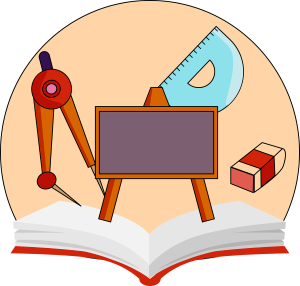Maths
- Curriculum
- Vincentian Values
- Catholic Social Teaching
- EYFS
- Phase Group Curriculum Maps
- Religious Education
- Spiritual, Moral, Social & Cultural Development
- English
- Maths
- Science
- ICT
- Music
- Modern Foreign Language
- Art & Design
- Design Technology
- History and Geography
- Physical Education
- PSHE
- RSE
- The Curriculum Outdoors
- Curriculum
- Vincentian Values
- Catholic Social Teaching
- EYFS
- Phase Group Curriculum Maps
- Religious Education
- Spiritual, Moral, Social & Cultural Development
- English
- Maths
- Science
- ICT
- Music
- Modern Foreign Language
- Art & Design
- Design Technology
- History and Geography
- Physical Education
- PSHE
- RSE
- The Curriculum Outdoors
Maths Curriculum Intent
Our intention is that all young Vincentians will experience success as a mathematician through fostering a love of learning for mathematics right from the Early Years through to Year 6.
Through refined planning and the delivery of a rich, balanced and progressive curriculum, skills acquired in the early years are built upon progressively through enquiry and an investigative learning approach to enable our children to be able to reason, problem solve and develop fluent conceptual understanding in each area of mathematics.
The children are encouraged to be independent learners through choice and challenge during lessons, developing competence and confidence in using and applying mathematical vocabulary, knowledge, concepts and skills.
Our aim is for all our children to be able to think mathematically, enabling them to be able to have the ability to solve problems, to reason, to think logically and to work systematically and accurately.
This equips our children with awareness of the relevance of Mathematics in the real world and have an ability to use and apply Mathematics in real life.

Key Stage One
The National Curriculum states that ‘the principle focus of mathematics in key stage 1 is to ensure that pupils develop confidence and mental fluency with whole numbers, counting and place value.’
Our teachers use a range of strategies to develop this understanding such as through games, practical activities and different ways of recording their learning. Children in key stage 1 will also study different shapes and use a range of measures such as length, time and money.
Lower Key Stage Two
The National Curriculum states that ‘the principle focus of mathematics teaching in lower key stage 2 is to ensure that pupils become increasingly fluent with whole numbers and the four operations, including number facts and the concept of place value.’
Our teachers ensure that our pupils develop their understanding of both written and mental methods to perform calculations accurately. Children in lower key stage 2 will also work with simple fractions and decimals, shapes and develop their accuracy when using measuring instruments.
Upper Key Stage Two
The National Curriculum states that ‘the principle focus of mathematics teaching in upper key stage 2 is to ensure that pupils extend their understanding of the number system and place value to include larger integers.’
Our teachers encourage the children to develop this understanding by making connections with other areas of mathematics such as fractions, decimals and percentages. The children in upper key stage two will begin to solve a wider range of problems where the children make links within their mathematical knowledge. They look in more detail at shape and measure, consequently extending their mathematical vocabulary.
The national curriculum for mathematics aims to ensure that all pupils:
- become confident in all areas of mathematics, developing skills to solve increasingly difficult problems by using their mathematical skills in a number of different practical activities.
- Be able to use correct mathematical language to explain their work.
- To gain problems solving skills such as being able to break a problem down into smaller steps and persevering in finding answers.
Every class has a daily mathematics lesson and cross curricular opportunities are also explored through Science (e.g. graphs), Design and Technology (e.g. measuring) and Art (space and shape).

Maths National Curriculum Objectives
Click link above to download a copy of the Department of Education's Maths national curriculum objectives.




